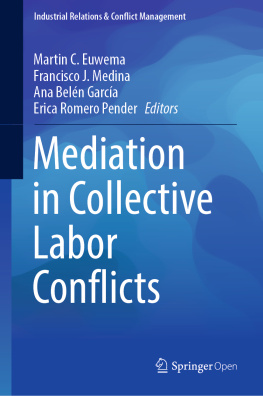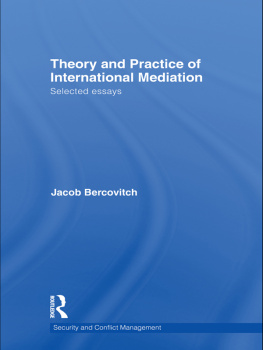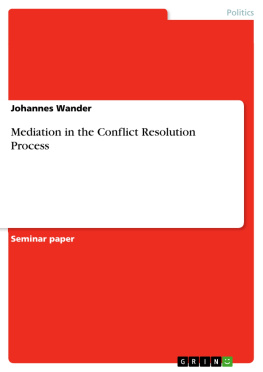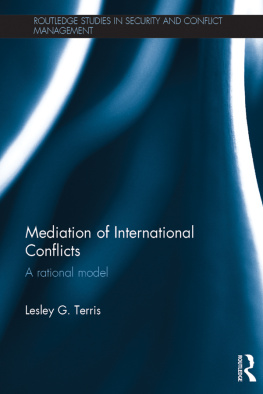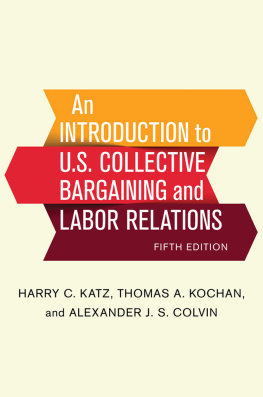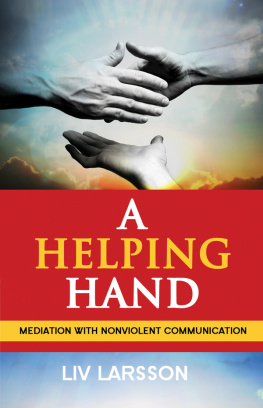Martin C. Euwema - Mediation in Collective Labor Conflicts
Here you can read online Martin C. Euwema - Mediation in Collective Labor Conflicts full text of the book (entire story) in english for free. Download pdf and epub, get meaning, cover and reviews about this ebook. year: 2019, publisher: Springer International Publishing, genre: Politics. Description of the work, (preface) as well as reviews are available. Best literature library LitArk.com created for fans of good reading and offers a wide selection of genres:
Romance novel
Science fiction
Adventure
Detective
Science
History
Home and family
Prose
Art
Politics
Computer
Non-fiction
Religion
Business
Children
Humor
Choose a favorite category and find really read worthwhile books. Enjoy immersion in the world of imagination, feel the emotions of the characters or learn something new for yourself, make an fascinating discovery.
- Book:Mediation in Collective Labor Conflicts
- Author:
- Publisher:Springer International Publishing
- Genre:
- Year:2019
- Rating:4 / 5
- Favourites:Add to favourites
- Your mark:
- 80
- 1
- 2
- 3
- 4
- 5
Mediation in Collective Labor Conflicts: summary, description and annotation
We offer to read an annotation, description, summary or preface (depends on what the author of the book "Mediation in Collective Labor Conflicts" wrote himself). If you haven't found the necessary information about the book — write in the comments, we will try to find it.
Mediation in Collective Labor Conflicts — read online for free the complete book (whole text) full work
Below is the text of the book, divided by pages. System saving the place of the last page read, allows you to conveniently read the book "Mediation in Collective Labor Conflicts" online for free, without having to search again every time where you left off. Put a bookmark, and you can go to the page where you finished reading at any time.
Font size:
Interval:
Bookmark:
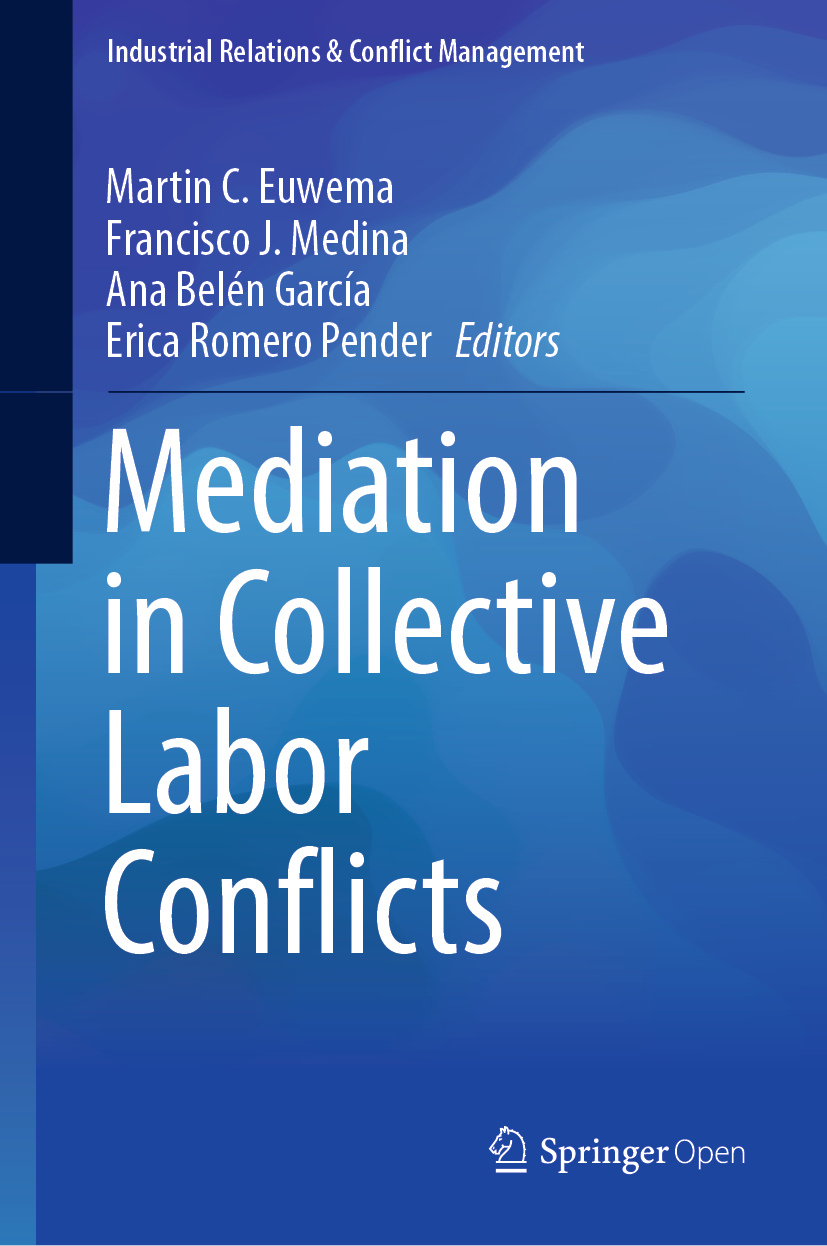
Disseminating cutting edge theories and empirical research in the field of industrial relations and conflict management, from an interdisciplinary approach, and firmly based in theories on human behaviour in relation to work and organizations. Formally the series will publish monographs and contributed or edited volumes from leading psychology and other social sciences scholars. Specifically, the series integrates theories and research from industrial relations (sociology, business, law and psychology), with those on conflict management, mediation and more generally well-being and productive behaviour in the workplace. Volumes in this series respond to the demands of policymakers and the public, remaining relevant and applicable for science, industry and society. Delivering relevant research and conclusions from local, regional, national and international perspectives. The aim of the series is to contribute to cooperative and constructive relations in organizations at three levels: organizational level, team level and interpersonal level. The series will contribute to the existing academic research and literature by providing an advanced publication platform for improving the science of understanding industrial relations and conflict management. Publishing volumes which deliver valuable contributions from the range of developing perspectives on this subject.
More information about this series at http://www.springer.com/series/13458


Open Access This book is licensed under the terms of the Creative Commons Attribution 4.0 International License (http://creativecommons.org/licenses/by/4.0/), which permits use, sharing, adaptation, distribution and reproduction in any medium or format, as long as you give appropriate credit to the original author(s) and the source, provide a link to the Creative Commons license and indicate if changes were made.
The images or other third party material in this book are included in the book's Creative Commons license, unless indicated otherwise in a credit line to the material. If material is not included in the book's Creative Commons license and your intended use is not permitted by statutory regulation or exceeds the permitted use, you will need to obtain permission directly from the copyright holder.
This Springer imprint is published by the registered company Springer Nature Switzerland AG
The registered company address is: Gewerbestrasse 11, 6330 Cham, Switzerland
Conflict is an inevitable part of working life in all its relations. Conflicts appear between individual colleagues, as well as between teams, departments, or between professional units. Of old, conflicts in the relation between employers and employees have received extensive attention and are at the basis of what is called industrial relations or labor relations. Particularly, with the rise of large-scale industrialization in the nineteenth century, conflict between capital and labor has been a central theme, and according to many is of a fundamental nature. Others argue that not conflict, however, cooperation is at the core of industrial relations. Employers and employees negotiate freely an agreement, meeting each others interests. Negotiations can be made between individual workers and the employer (the so-called i-deals) and between collectives of workers (collective labor agreements). The negotiations can, however, get stuck and the conflicts of interest between employer and employeesor their representativescan escalate. Power relations, more than mutual interests, might determine the conflict dynamics, resulting in deadlock, strikes, or layoffs. The tough negotiations, for example, in the case of Ryanair for several years, illustrate this. Strikes at different locations are countered by transferring airplanes and flights to other European countries. Collective conflicts also can occur when parties do not feel the agreement which is made, is kept. Such conflicts of rights (the perceived violation of one parties rights) have also received considerable attention, and many cases are brought to the labor courts, or to alternative forms of dispute resolution, such as mediation, arbitration, or conciliation. Here we are at the central topic of this volume. In academic literature mediation, or other forms of third-party intervention in collective labor conflicts have received surprisingly little attention. Surprising, for at least two reasons. First, the societal impact of escalating collective labor conflicts is large, with often serious collateral damage for others than the primary parties. Second, the field of mediation and third-party intervention is developing rapidly in many domains, and receives more and more also academic attention. Mediation in collective labor conflicts, however, has been neglected mostly and has many different features compared to mediation in other domains, such as divorce mediation or mediation in individual labor conflicts. Mediation in collective labor conflict has a long and also institutionalized tradition. In most societies, the terminology is different, and is referred to this process as conciliation in labor disputes, as a relative informal process of facilitated negotiation. Alternatively, most societies have long traditions in forms of mediation/arbitration, where a committee of wise persons organizes a hearing, investigates the case, and comes with recommendations to the conflicting parties on the content of the case. Such recommendations can, however not need to be, be binding for the parties. A large variety of third-party regulations and practices have emerged all around the globe. The ILO has done a great job in providing information on many such arrangements.
Font size:
Interval:
Bookmark:
Similar books «Mediation in Collective Labor Conflicts»
Look at similar books to Mediation in Collective Labor Conflicts. We have selected literature similar in name and meaning in the hope of providing readers with more options to find new, interesting, not yet read works.
Discussion, reviews of the book Mediation in Collective Labor Conflicts and just readers' own opinions. Leave your comments, write what you think about the work, its meaning or the main characters. Specify what exactly you liked and what you didn't like, and why you think so.

